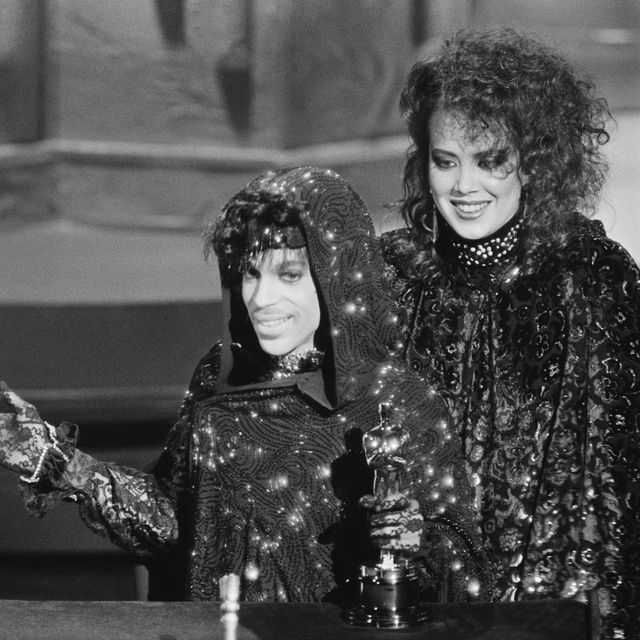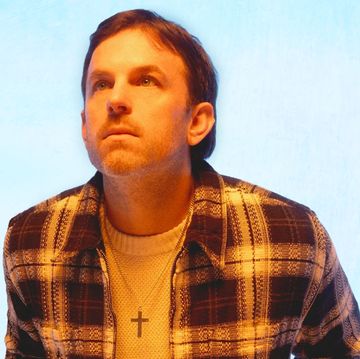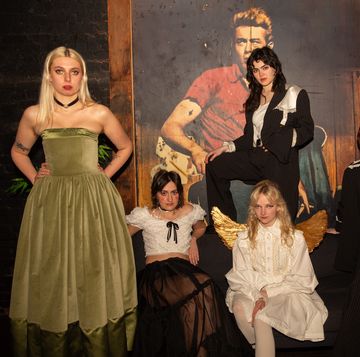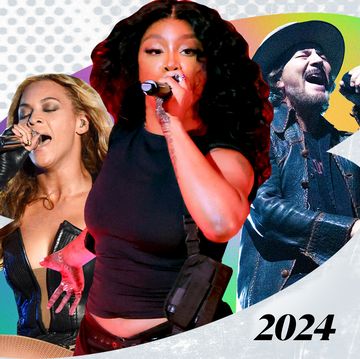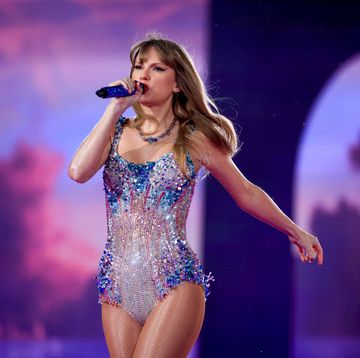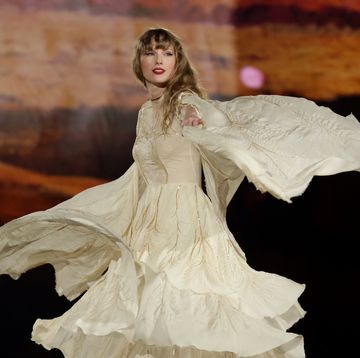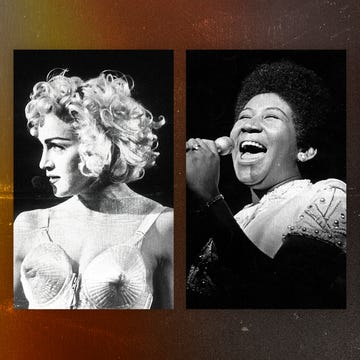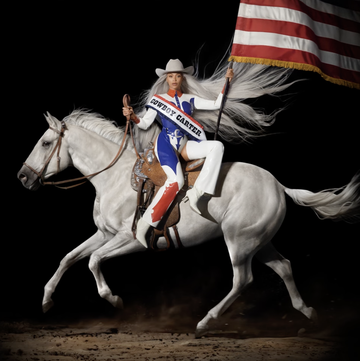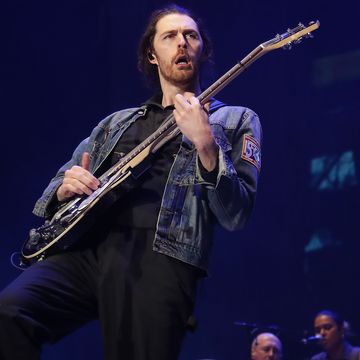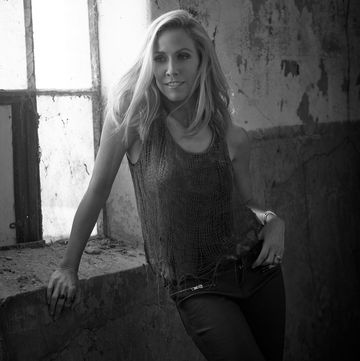"Dearly beloved, we are gathered here today to get through this thing called life," intones Prince Rogers Nelson at the start of 1984's seminal music film Purple Rain. Prince was only 26 when he starred as The Kid, but he already had five acclaimed albums under his belt and a career that would had already marked the multi-faceted artist as one of the most important talents popular music had ever witnessed.
Purple Rain, with a budget of $7.2 million, eventually earned more than $293.7 million and spawned the soundtrack of the same name, the first with his backing band the Revolution, featuring guitarist Wendy Melvoin and keyboardist Lisa Coleman.
If Apollonia was Prince's on-screen love interest, Wendy and Lisa were Prince's onstage (and offstage) foils on film and in life, working with him solidly in the early '80s as members of the Revolution before debuting as a duo with their self-titled debut album in 1987.
The film's tagline bragged, "Before he created the music, he lived every bit of it," and indeed he did. Until his sudden and shocking death on April 21, 2016, Prince, if enigmatic and idiosyncratic, never ceased a life of creativity and passion. The core (and current) Revolution lineup—comprised of Wendy and Lisa, drummer/percussionist Bobby Z, keyboardist Matt Fink, and bassist Brown Mark—are taking to the road this year, and their live appearances without their leader are painful, joyful, and hopefully cathartic for the band and Prince fans alike.
Wendy Melvoin and Lisa Coleman talked to Esquire.com about mourning the rock icon, revisiting Purple Rain, and remembering Prince's generous spirit.
Lisa Coleman was an L.A. teenager just out of high school when she joined Prince's band, quickly learning that new mentor and boss was both an ardent teacher and passionate student.
Lisa Coleman: It was really fun to explore [music] with Prince because there were a lot of things that I knew that he didn't know. But we connected over Joni Mitchell. He loved Joni. I grew up loving Sly and the Family Stone, Santana, Stevie Wonder, Earth, Wind and Fire, so we definitely connected over that. I started turning him on to classical music and he discovered Boléro by Ravel. We lived together off and on over the years, and I remember coming home and he was sitting there very intensely with the Boléro record on. He was like "This is insane, have you heard this before?" He was always on fire, and if you played him something new it was just the most exciting thing in the world—it just made you on fire and ready to burn down the world.
Prince's talent and genre-crossing musical and personal charisma was instantaneous and undeniable for millions. Wendy Melvoin was one of them.
Wendy Melvoin: I was dancing at the L.A. club the Starwood and I went up to the DJ and asked, "What song was it, and who the girl was singing?" The guy goes, "It's not a girl—it's a guy called Prince, and he's from Minneapolis." The song was "Soft and Wet." I was a stone-cold fanatic from that point on. When I found out Lisa had gotten a job playing with him, I was like, "Oh shit, does she even know who she's playing with?" The answer was absolutely no.
Lisa and I grew up knowing each other. We were budding lesbians, and by the time we were 16 we fell in love with each other. And two years later, they were shooting the "Sexuality" video. I saw Prince doing the very final section of the video where it's just him doing "Sexuality is all I'll ever need / Sexuality, I'm gonna let my body be free." I was standing in the room and I fell madly in love with the guy as I was watching him. I just couldn't believe that he was all of that and lived it, and he was it 100 percent. That was when I first met him; Lisa introduced me to him and I was infected completely.
Purple Rain may not be a masterpiece, but it stands as one of the rare movies that's at once a cult film and a blockbuster.
LC: I really haven't watched the whole movie. It seems like it's always on a weird Sunday when you just turn on the TV for some noise, so I'd seen some sections of it. I can't see it as the film—it looks like a series of photographs of old times. A home movie. I would have to agree with Wendy that the musical performances are great and remain really interesting and cool. The story and movie itself? A cheesy "B" movie, not that great. When we were first making the film, the original idea was that it would just be a cult film; we weren't interested in making a big blockbuster movie, but we ended up making a big blockbuster that ended up being a cult film down the line.
After his passing, most Prince insiders were too devastated and respectful to say or do much in public. If Prince infiltrated the heads, hearts, and lives of his legion of fans, it was no different for his bandmembers.
WM: From the day he died, we were asked to go on every TV show in the country to either play something or speak. We were like, "Holy shit, that's not going to happen." We were also called up by other artists, who were incredibly saddened by his death, who asked, "Wendy and Lisa, would you come on and sing blah-blah-blah with us because we want to do a tribute." We were like, "We can't speak of this, we can't move around the planet unless it's with The Revolution first. [His death] was so big, we just made a conscious effort to be very still and very quiet.
LC: Like Wendy said, when he first died, it was like a match striking: Everything just flared up and sparked and everybody was running around like "This is what we are going to do!" Wendy referred to Joni Mitchell and to David Bowie as meters that we measure ourselves against. Prince was that person for us, in the very personal way; I couldn't even sit down at my piano without sobbing. He was so in my mind. I lost my mother three years ago, so when I play the piano I am always playing for her. And Prince was always in my head. When we lived together or miles apart, he was one of the people in my head informing everything I did. I played things and would wonder if he'd like it. "Oh, that's something he would love." We were all so heartbroken, we couldn't even think about playing yet, we just needed to be together. When [the Revolution] did start rehearsing, it was hard getting through songs. It was impossible, we were crying.
To honor an icon with whom you were an intimate is a herculean task. Letting the music do the talking is often the best way.
WM: This is just a club tour; we are just going to go out and play. I personally don't want to assume the roles of organizing the way people are going to grieve this process. The only thing I can do, that I can be true about, is to perform the songs the best I can. Otherwise, it's almost like litigating someone's feelings, and we can't do that. We can perform the songs and be the band that we are and give the microphone to the room and let them sing and be joyous. All we can do in its truest form is cook this meal as best we can. People can come out and feel a sense of what this band was, what this ride was, to be on a kind of bullet train that we were, to just have a sense of it.
LC: It's more like we are also giving them a chance to feel what Prince felt—not just feel Prince. We were Prince's balancing pole, we were his net, his springboard, his dance floor, the bounce in his step, we put the groove in his butt while he was on stage. We are proud that we did that. We loved it and we loved him and each other and we want the audience to be in that place, share that feeling.
If Prince was "a comet with people chasing his tail" as Wendy opined—and many of his relationships were obscure and complex—ultimately, his love shone through.
LC: There are a lot of nice stories around things he did for us. One year he threw a birthday party at a club and sat Wendy down and said, "I have a surprise for you." And in walked Joni Mitchell.
WM: It was my 21st birthday. He also gave me a dog for Christmas, which ended up biting everybody on the road. It was a black Chow Chow; Lisa and I named it David.
LC: Here's the added thing: It's when your parents don't tell you how much they love you or whatever that type of psychology is. I hadn't been to Paisley Park in years, and I didn't know that he had been painting the walls, and some of pictures were of the Revolution. They were of us—paintings of us.
WM: He got an artist—Prince was good, but not that good. There's a huge mural with his arms outstretched and me and Lisa under one arm, and Bobby and Matt under the other. I think Lisa is right—it was like, "I never knew you loved me, Daddy." He wrote everything about me but couldn't tell me.
